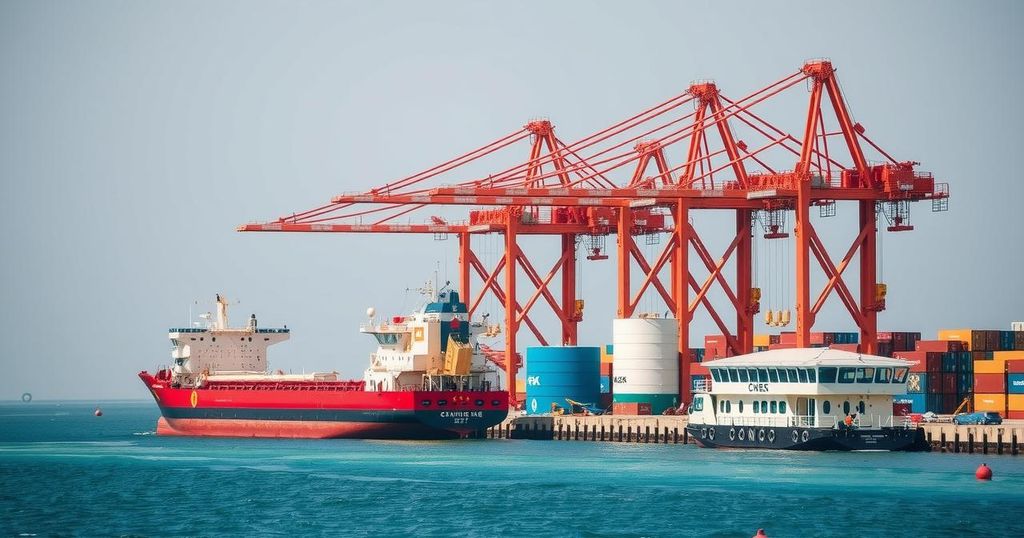Chinese investments in Djibouti have surged due to its strategic location, particularly under the Belt and Road Initiative. However, ongoing geopolitical instabilities resulting from the Red Sea crisis could complicate these investments. Challenges such as limited manufacturing and agricultural potential exist, despite Djibouti’s rich natural resources, notably Lake Assal’s salt reserves. The future of Chinese business in Djibouti hinges on how these geopolitical issues unfold.
The strategic location of Djibouti has significantly attracted Chinese investment, particularly under the Belt and Road Initiative, strengthening ties in sectors such as transport and port development. The country’s challenges, including scant manufacturing capabilities and a harsh environment leading to minimal agricultural productivity, cast a shadow on its reliance on imports. Nonetheless, the region boasts Lake Assal, which holds the world’s largest salt reserve; however, this asset has remained largely untapped until recent investments revitalized the salt industry, notably through the acquisition by China Communications Construction Company in 2015.
As the Red Sea crisis unfolds, it raises concerns for Chinese enterprises operating in Djibouti. While opportunities have flourished from China’s involvement in key infrastructure projects, the instabilities associated with the region might complicate future business prospects. Investors now face uncertainties regarding the implications of geopolitical unrest, which could disrupt logistical operations or alter the investment landscape in East Africa, necessitating a careful reassessment of risk versus reward in ongoing and future ventures.
Djibouti’s geographical position at the crossroads of international shipping routes has made it an attractive hub for foreign investment, particularly from China. The One Belt One Road Initiative has accelerated this trend, leading to significant investments in infrastructure, including ports and rail. However, despite its potential, Djibouti grapples with limitations such as a lack of sufficient manufacturing capacity and a demanding climate, hindering direct agricultural production. The status of Lake Assal presents both a challenge and an opportunity for economic development, shaped largely by Chinese investments.
In summary, while the economic partnership between China and Djibouti has yielded substantial benefits through investments in infrastructure and resource development, the potential ramifications of the Red Sea crisis could pose significant risks. The interplay between opportunity and uncertainty necessitates that Chinese businesses remain vigilant and adaptable in their strategies within this volatile geopolitical context. The ongoing dynamics will ultimately define the future trajectory of these investments in Djibouti and the broader East African region.
Original Source: www.scmp.com






